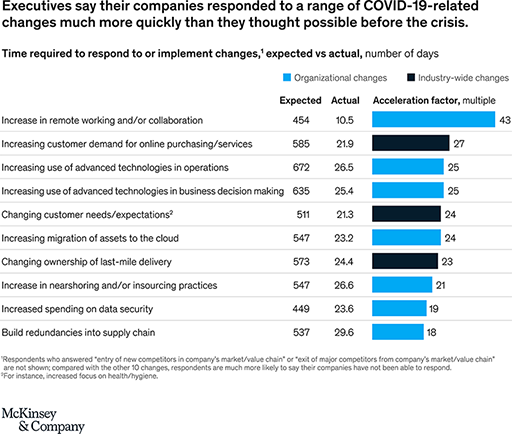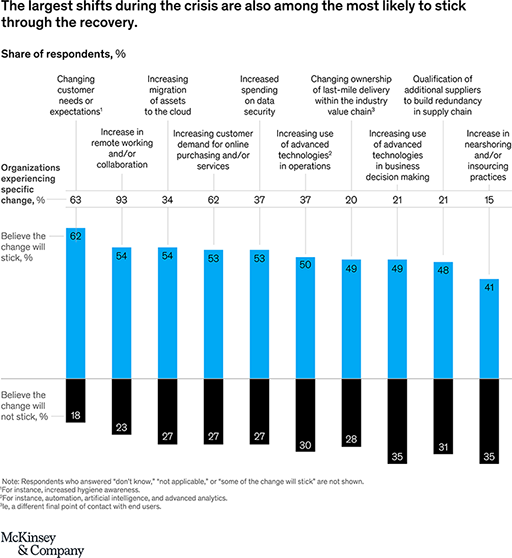7 Digital transformation
Prior to the pandemic, digital transformation was important to ensure that organisations and individuals had the infrastructure, knowledge, experience and capabilities to thrive in a digital world.
The pandemic accelerated the need to adopt digital technology, use data more effectively to make decisions, and focus on digital inclusion, both in terms of capabilities of organisations and individuals, but also how to support those who are digitally excluded.
For organisations that had to adapt and support remote working and for HEIs delivering remote learning, the role of technology within an organisation has become a key focus. The table below, from a report by McKinsey, demonstrates the speed of change due to the pandemic.
As organisations adopt a hybrid approach to working, the reliance on technology will remain, and understanding how it is evolving is important.
In the video contributors explain what organisations need to consider for digital transformation and the digital capabilities required for the future:

Transcript
The figure below provides a useful summary of the some of the changes that occurred during the COVID-19 pandemic that are likely to continue.
Organisations need to consider not only their internal environment but also their supply chain and, critically, online security and behaviour. As organisations place more trust on employees, it is paramount that they raise their understanding of and ability to work securely online and use technology and systems (such as file sharing and storage) safely and correctly.
They also need to investigate the infrastructure and tools required, and plan for the future, while ensuring a focus on digital sustainability, the digital capabilities required and government strategies.
Some key themes organisations are considering for the future include:
- automation of business processes − machine learning and artificial intelligence (AI)
- cloud computing
- use of data to drive decision making
- attracting talent with the right digital capabilities
- zero-trust approach to security
- how the metaverse will develop
- sustainability − reaching net zero, and carbon footprints.


